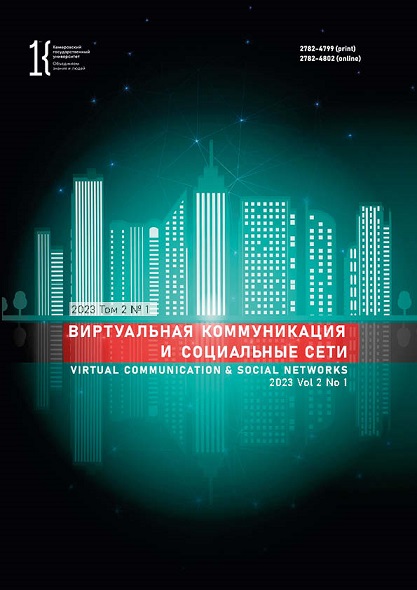Kemerovo, Russian Federation
Kemerovo, Russian Federation
Reverse machine translation can be used to identify the degree of readability of the source text because intelligibility correlates with translatability. The authors employed the methods of reverse machine translation, a program for comparing texts, and Internet search queries to test a speech given by President Vladimir Putin for unambiguity and prove the initial hypothesis about the correlation between the categories of intelligibility and translatability. If the translated fragment demonstrated no distortion of meaning, it was more lexically similar to the source text, which means it was more comprehensible for the program. The results were confirmed using a text comparison tool. The prospect of further research lies in the comparison of reverse machine translation and reverse manual translation in terms of comprehensibility, accessibility, and translatability.
reverse machine translation, translation, understandability, accessibility, search query, similarity of texts
1. Barinova I. A., Nesterova N. M., Ovchinnikova I. G. Linguistic consciousness: definition and interpretation. Vestnik Permskogo gosudarstvennogo tekhnicheskogo universiteta. Problemy yazykoznaniya i pedagogiki, 2010, (4): 10-21. (In Russ.)] https://elibrary.ru/nbqxbf
2. Barkhudarov L. S. Types of interlanguage lexical correspondences in English and Russian. Inostrannye yazyki v shkole, 1980, (5): 11-17. (In Russ.)]
3. Barkhudarov L. S. Language and translation: general and particular theory of translation. Moscow: Mezhdunarodnye otnosheniya, 1975, 240. (In Russ.)]
4. Bashkatova Yu. A. Reverse machine translation as a way of measuring semantic identity / differences of text variants. The modern paradigm of language analysis and intercultural communication and its applicative potential in teaching native and foreign languages: Proc. Nation. Conf. (Barnaul, 18-19 Sep 2019) Barnaul: AltSPU, 2020: 18-23. (In Russ.)] https://elibrary.ru/denngt
5. Belov S. A. The role of language in ensuring the clarity and certainty of normative legal acts. Vestnik of Saint Petersburg University. Law, 2022, 13(2): 293-308. (In Russ.)] https://doi.org/10.21638/spbu14.2022.201
6. Bosov A. E. "Principle of clearness" and lexical difficulties of its realization when posing questions for jurors. Yuridicheskaya nauka i praktika: Vestnik Nizhegorodskoi akademii MVD Rossii, 2011, (3): 80-82. (In Russ.)] https://elibrary.ru/onpfen
7. Golev N. D. Source potential of the back machine translation. Vestnik KRSU, 2018, 18(1): 36-45. (In Russ.)] https://elibrary.ru/yspbud
8. Golev N. D. Reverse machine translation in legal linguistic practice: problem statement. Modern trends in the development of science: Proc. Nation. Conf., Kemerovo, 25 Dec 2018. Kemerovo: KemSU, 2018, 3-5. (In Russ.)] https://elibrary.ru/qbwzbl
9. Golev N. D. Complexity vs accessibility and comprehensibility of the language of the law as a theoretical and expert problem. The Russian language in legal cases and procedures: Proc. Intern. Sci.-Prac. Conf., St. Petersburg, 18 May, 2021. St. Petersburg: Pervyi klass, 2021, 160-176. (In Russ.)] https://elibrary.ru/brhlkz
10. Golev N. D., Melnikova V. S. Reverse engineering translation at the service of legal linguistics. Innovative, information, and communication technologies: Proc. XVII Intern. Sci.-Prac. Conf., Sochi, 1-10 Oct 2020. Moscow, 2020, 8-11. (In Russ.)] https://elibrary.ru/vpemlg
11. Golev N. D., Saykova N. V. Presentation, parody, translation... On the basis of derivational interpretation of secondary texts. Linguistic existence of a person and ethnos: psycholinguistic and cognitive aspects, ed. Pishchalnikova V. A. Barnaul: AAEL, 2001, iss. 3, 20-27. (In Russ.)] https://elibrary.ru/rlsmjr
12. Kartashevich I. S. The original text in the intertext derivative mechanism (with the material of O. Henry’s story "Little Speck in Garnered Fruit" and its translations). MNKO, 2011, (3): 275-279. (In Russ.)]
13. Kiprskaya E. V. The main characteristics of the modern political text. Text in the system of higher professional education: Proc. 1st Intern. Sci.-Prac. Conf., Taganrog, 15-17 Sep 2003. Taganrog: TSPI, 2003, 57-58. (In Russ.)]
14. Mayboroda E.T. Judicial language understanding criteria. Vestnik of Saint Petersburg Juridical Academy, 2020, (3): 63-68. (In Russ.)] https://elibrary.ru/ecdpbp
15. Morozov A. V. Lexicographic backtranslation as a method of investigation. Proceedings of Voronezh State University. Series: Linguistics and intercultural communication, 2004, (1): 71-74. (In Russ.)] https://elibrary.ru/pijkwz
16. Razina I. G. Translation as the process of interlingual derivation. Language and culture. 2008, (1): 66-77. (In Russ.)] https://elibrary.ru/kgcyjn
17. Shveitser A. D. Translation and linguistics. Moscow: 1973, 280. (In Russ.)]















